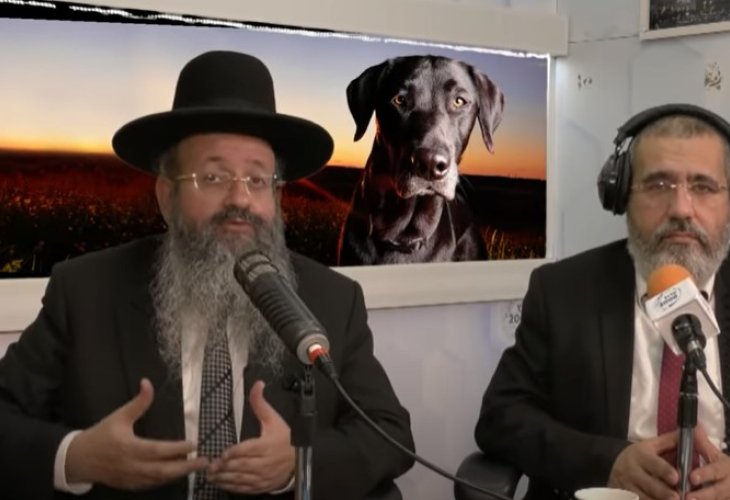Elijah the Prophet: Mysteries and Miracles
Explore the captivating story of Elijah the Prophet and his enduring impact on biblical history.

In the period following the reign of King Solomon, Ahab son of Omri took over and committed evil in the eyes of Hashem. He married Jezebel, daughter of Ethbaal (King of Sidon), worshipped Baal (a form of idol worship), and enraged Hashem with his actions. Jezebel, his wife, even executed many prophets.
During this time, an extraordinary prophet named Elijah, from Gilead, took action. He declared to Ahab that no rain or dew would fall for years, and it was so. During these years of famine, Elijah hid and lived with a widow and her son, sustaining them through miracles. His miracles extended beyond sustenance, even saving her son from death.
After several years, when the famine weighed heavily on Samaria, Hashem sent Elijah back to confront Ahab. When they met, Ahab called Elijah "the troublemaker of Israel," but Elijah retorted that Ahab was the true troublemaker by abandoning Hashem's commandments and following Baal. Elijah then asked Ahab to gather all of Israel and Baal's 450 prophets supported by Jezebel, on Mount Carmel. Ahab complied, and Elijah challenged them, proving the futility of idol worship: Baal's prophets couldn't summon fire to consume their offering, while Elijah, through prayer to Hashem, brought down fire from heaven, consuming the sacrifice. Witnessing this miracle, the people proclaimed, "Hashem is God!" Following this, Elijah ordered the execution of Baal's prophets at the Kishon Valley.
After instilling monotheism among the people and eliminating Baal's prophets, Elijah focused on bringing rain. His efforts were successful, as the skies darkened and a great rain fell. As Ahab departed towards Jezreel, Elijah ran before his chariot. Upon arrival, Ahab informed Jezebel of the day's events, including the execution of Baal's prophets. Jezebel threatened Elijah's life, prompting him to flee. During his escape into the wilderness, Elijah fell asleep under a tree, where an angel appeared, instructing him to eat. With this strength, Elijah traveled to Mount Horeb, where he experienced a divine revelation, directing him to appoint Elisha son of Shaphat as a prophet.
Elijah obeyed, found Elisha plowing with oxen, and threw his cloak over him. Understanding Elijah's gesture, Elisha immediately decided to join him, bidding farewell to his parents to follow and serve Elijah.
Meanwhile, Naboth from the Jezreel Valley owned a vineyard adjacent to Ahab's palace. Ahab coveted the land, offering Naboth a better vineyard or money, but Naboth refused to sell his ancestral inheritance. Ahab returned home sullen and refused to eat. Noticing this, Jezebel promised to handle the matter personally. She schemed against Naboth, accusing him of blasphemy and treason, leading to his execution. In those days, property of executed traitors reverted to the crown, allowing Ahab to claim Naboth's vineyard.
Hashem then sent Elijah to confront Ahab about his wrongdoing, famously stating, "Have you murdered and also taken possession?" and prophesying doom for Ahab, Jezebel, and his lineage. Upon hearing this, Ahab tore his clothes, fasted, and showed repentance, which moved Hashem to delay the punishment to Ahab's son's reign. Ahab eventually died in battle against Aram and was succeeded by his son Ahaziah.
Shortly after Ahaziah's ascent, he suffered an accident and fell ill. From his bed, he sent messengers to inquire of Baal-Zebub, a pagan deity of Ekron, about his recovery. Meanwhile, Hashem instructed Elijah to intercept them, questioning why they sought Baal-Zebub instead of Hashem. Elijah prophesied Ahaziah's deathbed fate, which the messengers relayed back. Despite several attempts to capture Elijah, each met with failure due to his miraculous defenses. Only the third delegation, led by a suppliant captain, persuaded Elijah to come. Elijah delivered Hashem's message of doom to Ahaziah, who indeed died, succeeded by his brother Joram.
Elisha, aware of Elijah's impending departure, was asked for his final wish. He requested a double portion of Elijah's spirit, which Elijah promised if Elisha witnessed his departure. As they walked, a fiery chariot separated them, and Elijah ascended in a whirlwind. Elisha witnessed this and called out, "My father, my father, the chariot of Israel and its horsemen," signaling his inheritance of Elijah's prophetic spirit and his ascent among Israel's greatest prophets.

